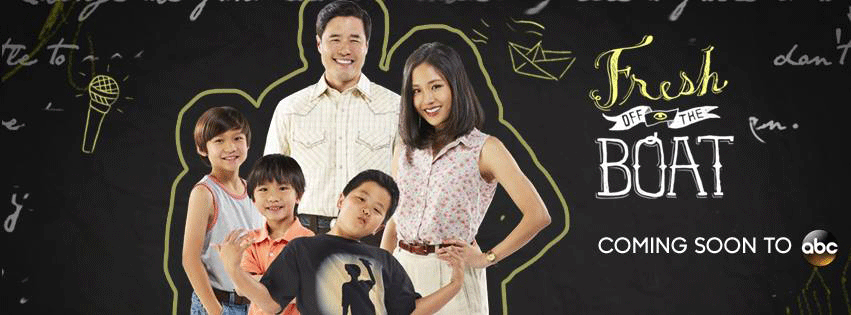Based off of American chef Eddie Huang’s book “Fresh Off the Boat: A Memoir,” the sitcom “Fresh Off the Boat” made its debut on Feb. 4. Set in the mid-1990’s, the new sitcom chronicles a Taiwanese immigrant family’s struggle to assimilate to American society. Huang is not portrayed as the conventional Asian-American kid—while the stereotypical image of Asians dictates that they spend all their time learning to play instruments and studying math, Huang is busy shoplifting CDs and attempting different drugs. Due to its unconventionality, “Fresh Off the Boat” quickly garnered popularity, with its very first episode reaching 7.94 million viewers.
In its episodes, “Fresh Off the Boat” portrays each of the family members struggling to adapt to their recently changed lifestyles. While Huang’s mother struggles to compromise the cultural differences between Washington D.C. and Orlando, the father strives to embrace the American Dream. Simultaneously, Huang and his brothers are seen as having their own problems at school.
“I started watching [this sitcom] as soon as it came out and I have been anxiously waiting for the next episode ever since,” said Ryan Choi (11), “Fresh Off the Boat” fan. “I’ve always had a problem with the fact that Asians were always seen as nerdy and antisocial in sitcoms because the stereotype generalizes and gives off a negative perception of Asians overall. By showing a different side of Asians in arts and entertainment, with Eddie so obsessed with rapping, ‘Fresh Off the Boat’ gives a portrayal of an Asian-American family truly worth watching.”
Although “Fresh Off the Boat” is meant to be humorous and benign, as it is a comedy show, it has also been subject to critical reception. Some claim that this sitcom only shows the typical representation of Asian immigrants and question why Asians cannot be depicted positively in the media. Others who agree that this sitcom is relatable and comedic complain that it unfairly opened up spots for Asian actors and actresses who are desperate to become famous quickly.
“We learned a lot about stereotyping in the media in our [AP English Language and Composition] class, and this sitcom seems to be a pretty good representation of that,” Lukas Kim (11) said. “The conservative mom has a fake, forced accent, the dad tries to set up a store and be successful, and Eddie’s just obsessed with fitting in—the most typical set-up of an Asian or immigrant family. It’s not like Eddie always studies, but I still feel as if the depiction is him having trouble fitting in. As a Korean, I just felt like Asians are much more diverse than what the media shows.”

